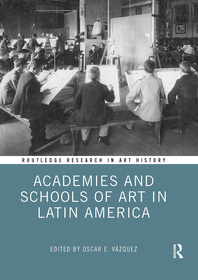
Sustainable Global Communities in the Information Age
Visions from Futures Studies
Sorozatcím: Praeger Studies on the 21st Century;
-
20% KEDVEZMÉNY?
- A kedvezmény csak az 'Értesítés a kedvenc témákról' hírlevelünk címzettjeinek rendeléseire érvényes.
- Kiadói listaár GBP 33.99
-
16 238 Ft (15 465 Ft + 5% áfa)
Az ár azért becsült, mert a rendelés pillanatában nem lehet pontosan tudni, hogy a beérkezéskor milyen lesz a forint árfolyama az adott termék eredeti devizájához képest. Ha a forint romlana, kissé többet, ha javulna, kissé kevesebbet kell majd fizetnie.
- Kedvezmény(ek) 20% (cc. 3 248 Ft off)
- Kedvezményes ár 12 991 Ft (12 372 Ft + 5% áfa)
Iratkozzon fel most és részesüljön kedvezőbb árainkból!
Feliratkozom
16 238 Ft

Beszerezhetőség
Megrendelésre a kiadó utánnyomja a könyvet. Rendelhető, de a szokásosnál kicsit lassabban érkezik meg.
Why don't you give exact delivery time?
A beszerzés időigényét az eddigi tapasztalatokra alapozva adjuk meg. Azért becsült, mert a terméket külföldről hozzuk be, így a kiadó kiszolgálásának pillanatnyi gyorsaságától is függ. A megadottnál gyorsabb és lassabb szállítás is elképzelhető, de mindent megteszünk, hogy Ön a lehető leghamarabb jusson hozzá a termékhez.
A termék adatai:
- Kiadó Praeger
- Megjelenés dátuma 1997. június 25.
- Kötetek száma Paperback
- ISBN 9780275960629
- Kötéstípus Puhakötés
- Terjedelem248 oldal
- Méret 234x155 mm
- Súly 397 g
- Nyelv angol 0
Kategóriák
Hosszú leírás:
Because the Information Age is so extremely different from the Industrial Age, the socioeconomic systems that will evolve will be different as well. The systems based on capitalist market economies and socialist planned economies proved to be neither sustainable nor community based. The scholars who contributed to this volume, including Nobel Laureates and other leaders in diverse fields, consciously look to new socioeconomic systems that would be sustainable and would be community-based.
The failure of the Industrial Age is partly due to the education system peculiar to that age, which only values highly fragmented specialists, without questioning the interrelationships of professions and fragmented viewpoints. In the emerging Information Age, a new type of higher-education system, one focused on holistic viewpoints, is needed to unify fragmented professions. This and other future-oriented visionary perspectives emerge from this collection-one that will be of great value to all researchers and thinkers concerned with the new opportunities arising from the emerging Information Age.
Tartalomjegyzék:
Roger Sperry's Views on Mind, Consciousness, and Human Values: A Challenge to the World Community by Theodore J. Voneida
List of Contributors
Environmental Issues and Future Studies
Some Remarks on the Human and Planetary Condition by Jerome Karle
The Impact and Promise of the Cognitive Revolution by Roger W. Sperry
Futures Studies and Sustainable Community Development by Jim Dator
UNESCO and Future-Oriented Studies by Albert Sasson
New Framework of Community Economy
Sustainability and a MuRatopian Economy by Kaoru Yamaguchi
The Community Land Trust Model by Chuck Matthei and Michael LaFontaine
Cultural Paradigm Shift Towards Sustainability by Kazuo Mizuta
Building Sustainable Communities Globally
The Green Alternative: Towards a Future of Sustainable Communities in the USA by Brian Tokar
Towards Global Sustainable Community: A View from Wisconsin by Belden Paulson
Advanced MuRatopian Community Development in Japan by Hiroyuki Niwa
Sustainable Philosophy for Global Community Development: A Korean Perspective by Yoon-Jae Chung
The Development of Rural Communities in China under a Socialist Market Economy by Qin Linzheng
The Operational Style of the Chinese Market Economy in the Twenty-First Century by Zhang Zerong
New Centre of the Future Society: Prosperous Villages in India by Nandini Joshi
Community Development and the Futures of Sustainable Communities in the Philippines by Cesar Villaneuva
Micronesia Futures in Asia and the Pacific by Dirk A. Ballendorf
Interconnecting Local Communities Globally: An Australian Perspective by Tony Stevenson, Ingrid Burkett, and San San Myint













